Locust bean in Nigeria
In Nigeria, the term "locust bean" typically refers to the fermented seeds of the African locust bean tree (Parkia biglobosa). Locust bean is widely used in Nigerian cuisine as a seasoning and flavoring agent. It is known by different names across Nigeria, including "iru" among the Yoruba people, "ogiri" among the Igbo people, and "dawa dawa" among the Hausa people.
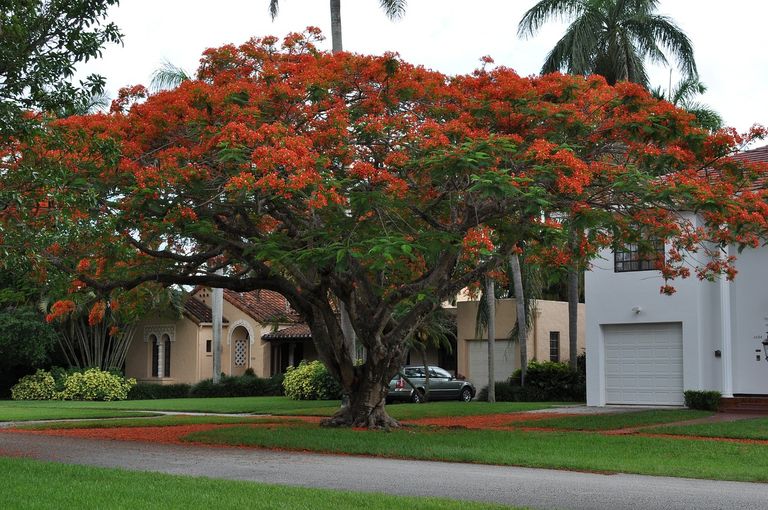
source
Locust bean seeds are traditionally fermented before use. The fermentation process involves soaking the seeds in water for several days and allowing them to undergo natural fermentation. This process results in a strong, pungent aroma and a distinctive flavor.
Locust bean is commonly used in soups, stews, and sauces to enhance the taste of various dishes. It adds a rich, earthy flavor and can be used as a substitute for or in combination with other flavorings like stock cubes. Locust bean is particularly popular in dishes such as Egusi soup, Okra soup, and various local stews.
Apart from its culinary uses, locust bean also has nutritional benefits. It is a good source of protein, dietary fiber, vitamins, and minerals. Locust bean is also believed to have some health benefits, such as aiding digestion and promoting a healthy gut due to its probiotic properties.
Locust bean holds significant cultural and culinary importance in Nigeria and is valued for its unique flavor and nutritional properties.
How to prepare the locust bean
To prepare locust bean (fermented African locust bean seeds) for cooking, you can follow these steps:
Purchase or harvest fermented locust bean: You can find fermented locust bean in Nigerian markets or specialty African food stores. Alternatively, you can ferment the seeds yourself by soaking them in water for a few days until they become soft and slightly fermented.

sourceRemove the outer shells: Once you have the fermented locust bean, remove the outer shells or skins. This can be done by gently squeezing the seeds or using a mortar and pestle to crack the shells and separate them from the inner pulp.
Separate the pulp from the seeds: After removing the outer shells, you'll be left with the inner pulp. Separate the pulp from the seeds by gently rubbing and rolling the pulp between your palms. The pulp will break apart, leaving the seeds behind.
Prepare the pulp for cooking: The separated locust bean pulp is what you'll use for cooking. You can leave it as is, or further process it by grinding it in a mortar and pestle or blending it in a food processor to achieve a smoother consistency.
Use in cooking: The prepared locust bean pulp can now be used in various Nigerian recipes. It is commonly added to soups, stews, and sauces during the cooking process. Depending on the recipe, you may add it at the beginning to infuse the flavors throughout the dish or towards the end for a more pronounced taste.
Note: Locust bean has a strong and pungent aroma, so it is advised to use it sparingly at first, especially if you are unfamiliar with its flavor. Gradually increase the amount according to your preference.
Remember that the preparation process may vary slightly depending on regional and personal preferences.
States that produces it in large quantity in Nigeria
In Nigeria, several states are known for the large-scale production of locust bean. Some of the major states that produce locust bean in significant quantities include:
Oyo State: Oyo State, located in southwestern Nigeria, is renowned for its production of locust bean. The town of Ibadan, the state capital, is particularly recognized for its locust bean markets and processing centers.
Enugu State: Located in the southeastern part of Nigeria, Enugu State is another major producer of locust bean. The town of Nsukka, in particular, is known for its locust bean production and is often referred to as the "home of locust bean."
Ebonyi State: Ebonyi State, also situated in southeastern Nigeria, is recognized for its abundant production of locust bean. The town of Abakaliki, the state capital, and its surrounding areas are known for their locust bean cultivation and processing.
Kano State: Kano State, located in northern Nigeria, is a significant producer of locust bean. The state has a long-standing tradition of locust bean cultivation and processing, with various local markets dedicated to the trade.
Niger State: Niger State, located in central Nigeria, is known for its substantial locust bean production. The town of Bida, in particular, is recognized for its locust bean markets and processing activities.
Benue State: Benue State, situated in central Nigeria, is also a notable producer of locust bean. The state has favorable climatic conditions for locust bean cultivation, and its farmers engage in both subsistence and commercial production.
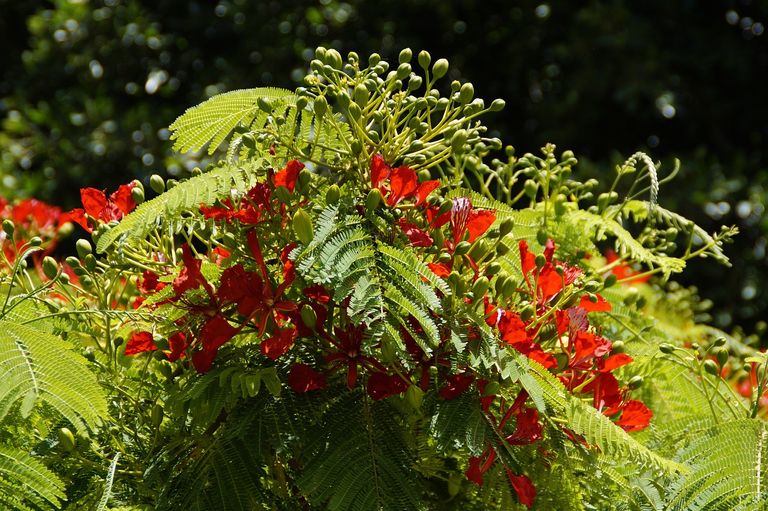
source
These states, among others, contribute significantly to the overall production of locust bean in Nigeria, meeting the demand for this important ingredient in local and international markets.
What's the importance of the locust bean in soup? How does it add up to flavor?
Locust bean is highly valued in Nigerian cuisine, particularly in soups, due to its ability to enhance the flavor profile of dishes. Here's how locust bean adds to the flavor of soup:
Umami flavor: Locust bean contributes a deep and intense umami flavor to soups. Umami is considered the fifth basic taste, often described as a savory or meaty taste. It adds richness and depth to the overall flavor profile of the soup, making it more satisfying and enjoyable.
Earthy and nutty notes: Locust bean has a distinct earthy and nutty aroma and taste. These flavor characteristics can complement and enhance the natural flavors of other ingredients in the soup, such as vegetables, meats, or seafood.
Balancing flavors: Locust bean acts as a natural flavor enhancer and can help balance the taste of the soup. It can add a subtle sweetness that complements the overall flavor profile, helping to round out any sharp or overpowering flavors.
Complexity and depth: The addition of locust bean to soups can bring complexity and depth to the overall flavor profile. It provides a unique and robust taste that distinguishes the soup, making it more interesting and satisfying.
Traditional and cultural significance: Locust bean has been used in Nigerian cuisine for generations, and its inclusion in soups is deeply rooted in the country's culinary traditions. Its presence in soups is often considered essential for an authentic and flavorful Nigerian meal.
Locust bean has a strong and pungent aroma, and its flavor can be quite intense. Therefore, it is typically used in moderation to avoid overpowering the other flavors in the soup. The amount of locust bean used can vary based on personal preference and the specific recipe being prepared.
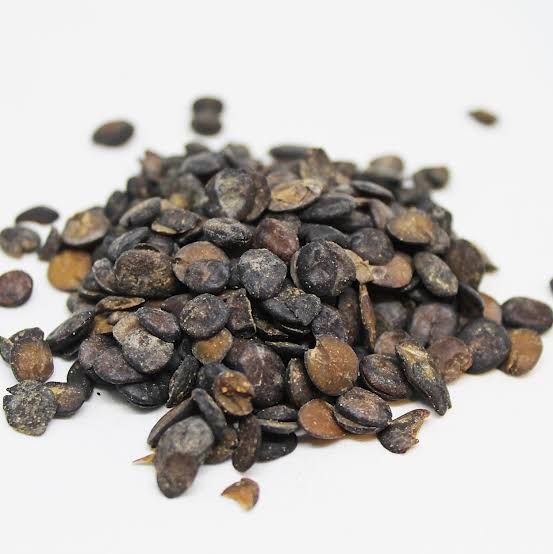
source
Type of Nigerian delicacies that locust bean can be used for
Locust bean, known as "iru" in Yoruba, "ogiri" in Igbo, and "dawa dawa" in Hausa, is used in various Nigerian delicacies to enhance their flavor and aroma. Here are some popular Nigerian dishes and delicacies where locust bean is commonly used:
Egusi Soup: Egusi soup is a widely enjoyed Nigerian soup made from ground melon seeds. Locust bean is often added to Egusi soup to add depth and richness to the flavor.
Efo Riro: Efo Riro is a vegetable soup made with various leafy greens such as spinach, kale, or amaranth leaves. Locust bean is commonly added to Efo Riro to provide a distinct umami flavor.
Ofe Owerri: Ofe Owerri is a traditional Igbo soup made with a variety of ingredients such as assorted meats, vegetables, and spices. Locust bean is a key ingredient in Ofe Owerri, contributing to its unique taste.
Bitter Leaf Soup: Bitter Leaf Soup is a popular Nigerian soup made from the leaves of the bitter leaf plant. Locust bean is often included in this soup to balance the bitterness of the leaves and add a savory flavor.
Okra Soup: Okra soup, also known as "Obe ila" in Yoruba or "Okro" soup, is a delicious Nigerian delicacy made with sliced okra, meat or seafood, and various seasonings. Locust bean is commonly used in Okra soup to enhance its flavor and add a distinctive taste.
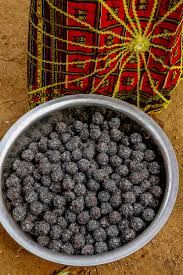
sourceNsala Soup: Nsala Soup, also called "White Soup," is a delicacy from the Igbo tribe. It is a light, flavorful soup typically made with catfish or chicken and seasoned with spices. Locust bean can be added to Nsala Soup to enhance its taste and aroma.
Banga Soup: Banga Soup, also known as "Ofe Akwu," is a traditional Nigerian soup made from palm fruit extract. Locust bean is often used in Banga Soup to give it a unique flavor profile.
These are just a few examples of Nigerian delicacies where locust bean is commonly used. Locust bean's rich umami flavor and distinctive taste make it a prized ingredient in Nigerian cuisine, adding depth and complexity to these traditional dishes.
What's the nutrients it adds to the body?
Locust bean, also known as Parkia biglobosa or African locust bean, offers various nutrients and health benefits when consumed. Here are some of the key nutrients that locust bean provides:
Protein: Locust bean is a good source of protein. Protein is essential for building and repairing tissues, supporting muscle growth, and maintaining overall health.
Dietary Fiber: Locust bean contains dietary fiber, which is beneficial for digestive health. Fiber aids in regulating bowel movements, promoting satiety, and supporting a healthy gut.
Vitamins: Locust bean is a natural source of vitamins, including vitamin C, vitamin A, and several B-vitamins such as thiamin (B1), riboflavin (B2), and niacin (B3). These vitamins play important roles in various bodily functions, including immune support, vision health, energy production, and more.
Minerals: Locust bean contains minerals like calcium, iron, potassium, magnesium, and phosphorus. These minerals are essential for maintaining strong bones, supporting proper nerve and muscle function, and contributing to overall well-being.
Antioxidants: Locust bean is rich in antioxidants, including phenolic compounds. Antioxidants help protect the body against oxidative stress caused by harmful free radicals, which may contribute to various chronic diseases.
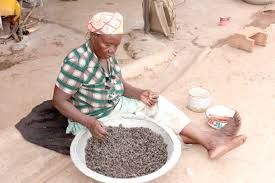
source
It's important to note that the specific nutrient composition of locust bean can vary slightly depending on factors such as the processing method, storage conditions, and region of cultivation. However, locust bean is generally recognized as a nutritious food ingredient that contributes to a well-balanced diet.
As with any food, it is recommended to consume locust bean in moderation as part of a varied and balanced diet to enjoy its nutritional benefits.
Some of the challenges faced in the production of locust bean in Nigeria
The production of locust bean in Nigeria faces several challenges, which can impact its availability, quality, and overall production. Some of the challenges include:
Inadequate processing facilities: Insufficient processing facilities and equipment can limit the efficiency and capacity of locust bean production. Many local processors rely on traditional methods, which can be time-consuming and result in lower-quality products.
Post-harvest losses: Locust bean is susceptible to post-harvest losses due to inadequate storage and preservation practices. Poor storage facilities and improper handling can lead to spoilage, mold growth, and insect infestation, reducing the overall quality and market value of the product.
Limited access to markets: Farmers and locust bean producers often face challenges in accessing profitable markets. Limited transportation infrastructure, poor market linkages, and lack of market information can hinder the distribution and sale of locust bean products.
Climate change and environmental factors: Climate change, including unpredictable rainfall patterns, prolonged droughts, and increased temperatures, can affect the growth and yield of locust bean trees. These environmental factors can impact the availability and productivity of locust bean, leading to reduced harvests.
Pests and diseases: Locust bean trees are susceptible to various pests and diseases, including pod borers, stem borers, fungal infections, and bacterial diseases. These can cause significant damage to the trees and reduce yields if proper pest and disease management practices are not implemented.
Limited research and development: The locust bean sector in Nigeria has seen limited research and development initiatives. Insufficient investment in research, breeding programs, and improved agronomic practices can hinder advancements in productivity, quality, and disease resistance.
Limited access to credit and financial support: Many locust bean farmers and processors face challenges in accessing credit and financial support to invest in improved production techniques, equipment, and storage facilities. This limits their ability to expand and enhance their operations.
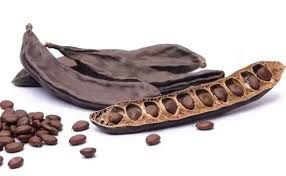
source
Addressing these challenges requires collaborative efforts from government institutions, agricultural extension services, research institutions, and stakeholders in the locust bean value chain. Investing in infrastructure, providing training and technical support, promoting market linkages, and implementing climate-smart agricultural practices can contribute to the sustainable production and development of locust bean in Nigeria.
In conclusion, locust bean holds significant cultural and culinary importance in Nigeria. It is the fermented seed of the African locust bean tree and is commonly used in Nigerian cuisine, particularly in soups and stews. Locust bean adds a distinct flavor profile to dishes, providing a deep umami taste, earthy and nutty notes, and balancing flavors. It is valued for its ability to enhance the overall taste and complexity of various delicacies.
Locust bean also offers several nutritional benefits. It is a good source of protein, dietary fiber, vitamins, minerals, and antioxidants. These nutrients contribute to supporting overall health, including muscle growth, digestive health, immune function, and more.
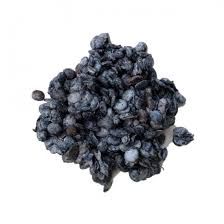
Conclusion
Locust bean should be consumed in moderation, as its strong flavor can be overpowering if used excessively. However, when used appropriately, locust bean adds a unique and enjoyable element to Nigerian dishes, making it a cherished ingredient in the country's culinary traditions.